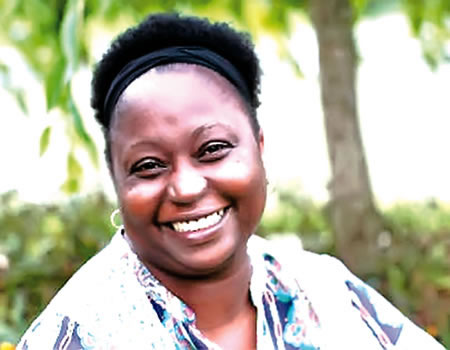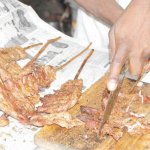YEJIDE Kilanko’s debut novel, Daughters Who Walk This Path highlights the pain and shame of child sexual abuse. In this interview, however, she speaks on how far she went before she got the manuscript published. EXCERPTS:
TELL us about your debut novel, Daughters Who Walk This Path?
Set in modern day Nigeria, Daughters Who Walk This Path is the story of Morayo and Morenike, two female cousins who experience the pain and shame of child sexual abuse. Thrust into a web of oppressive silence woven by the adults around her, Morayo learns to fiercely protect herself and her younger sister. Only her older cousin, Aunty Morenike — once protected by her own mother—provides Morayo with a safe home, and a sense of female community which sustains Morayo as she grows into a young woman in bustling, politically charged, often violent Nigeria. It is a story about loss and gain, life and death, family and love in a culture where dark secrets are often, masked with bright smiles.
What inspired you to write the book?
In June 2009, I had just started work as a newly-minted social worker in child protection services. The role guaranteed a constant exposure to heart-wrenching stories of child sexual abuse and I struggled to fall and stay asleep. So, Daughters Who Walk This Path, really began life as a short poem written in June 2009. That poem was titled Silence Speaks. After sharing the poem with friends, I was surprised at the discussions that followed in regards to the prevalence of child sexual abuse. I decided then to write a novel about it. It took me about eight months to write the very first manuscript.
Some critics have labelled the book feminist (in a positive way). Would you consider your writing feminist?
I do see my writing as feminist in the sense that it reflects my personal convictions. I strongly believe in the value and potential that is part of the girl child, regardless of their social location. I believe that women deserve equal status, to be part of the decision making processes, whether in their homes, at work or in public forums. As reflected in Daughters Who Walk This Path, my hope is that ultimately, women are able to decide on what is empowering to them as unique individuals without judgment from men or other women.
It is quite a remarkable achievement for any first time writer to be published by a prestigious house like Penguin. What was your journey to getting published?
My journey to publication really was a whirlwind, surreal one. The novel took me about a year to write and on August 16, 2010, I sent out queries to literary agents in the United States. That same day, I received a request for a full manuscript. Exactly one week later, I had an offer of representation from my fantastic agent. In May 2011, after we had spent some time polishing the manuscript, we made submissions to Canadian publishing houses. We heard back from my editor at Penguin Canada, about three days later. We subsequently received a publishing offer later that month.
Have you got tips for other authors who are trying to get their books out there?
After reading so many query/submission horror stories, I almost talked myself out of trying to find an agent. I told myself that if all these people who had all the writing education/ experience behind them were finding it so difficult, who was I to think I could do it. So my first tip will be don’t give up on yourself before you even begin. You never know what could happen when you try. My second tip would be to put your best work forward always. Try to take full advantage of any opportunity that comes your way. There are so many writers and limited chances. Remember that it might take a while before another one comes along.
Which writers have inspired you along the way?
Growing up, a lot of the books I read came from the African Writer’s Series and from these, the works of Buchi Emecheta, Cyprian Ekwensi and Ama Ata Aidoo really made me think about issues relating to gender roles and societal expectations. In my teenage years, I started watching and reading plays. Zulu Sofola’s Wedlock of The Gods and Athol Fugard’s Sizwe Bansi is Dead were favourites. I’m glad I later discovered Nadine Mortimer and Toni Morrison. They both expanded my world with their works. As a reader and writer, I really enjoy humour and find stories like those written by E.C Osondu, a breath of fresh air.
WATCH TOP VIDEOS FROM NIGERIAN TRIBUNE TV
- Relationship Hangout: Public vs Private Proposals – Which Truly Wins in Love?
- “No” Is a Complete Sentence: Why You Should Stop Feeling Guilty
- Relationship Hangout: Friendship Talk 2025 – How to Be a Good Friend & Big Questions on Friendship
- Police Overpower Armed Robbers in Ibadan After Fierce Struggle






